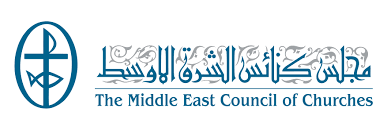MECC: Trauma Healing and Spiritual Counseling in Syria
 The MECC Theological and Ecumenical Department (TED) held the first session of its program “Trauma Healing and Spiritual Counseling”, dedicated for ministers and pastors from different parishes in the village of Al-Mishtaya in Wadi Al-Nasara – Syria from January 27 till February 1, 2020.
The MECC Theological and Ecumenical Department (TED) held the first session of its program “Trauma Healing and Spiritual Counseling”, dedicated for ministers and pastors from different parishes in the village of Al-Mishtaya in Wadi Al-Nasara – Syria from January 27 till February 1, 2020.
The session took place for 5 days and was entitled ‘’He said to them, “Come away to a deserted place all by yourselves and rest a while” (Mark 6:31)”. The participants were 24 in total including priests, nuns and individuals from many Syrian regions such as Qamishli, Aleppo, Deir Al-Zour, Homs, Damascus. They work in different ecclesial organizations that offer medical, pastoral and social services. The beneficiaries came from parishes that include elderly members, children and poor families that live in difficult social conditions, and have faced persecution, displacement and several types of violence. Also, some of the participants had suffered severe trauma as a result of kidnap or murder attempts that they or their relatives were exposed to.
During a daily program, the participants were accompanied by a team of priests, trainers and psychotherapists. They participated in various activities, starting with morning prayers, followed by educational sessions on psychological topics such as the concept of death, resilience, and ways to adapt and deal with spiritual, physical, and psychological trauma. In addition, several spiritual topics related to the conditions lived by the participants and the repercussions of crises and traumas, were discussed. The afternoon period was dedicated to sport exercises and sessions on personal and life skills. Moreover, each participant benefited from an individual accompaniment with a psychotherapist and a spiritual counselor. During this program, the group also undertook a pilgrimage trip to the St. George’s Archaeological Patriarchal Monastery in Al-Homeyra and a cultural visit to the fort of Al-Hosn in the Marmarita region.
The participants also got to present their talents and the cultural traditions of their Churches and communities; this is what made them closer and allowed them to discover each other’s backgrounds. In conclusion, it is worth noting that the participants have evaluated the program at the end of the session.
